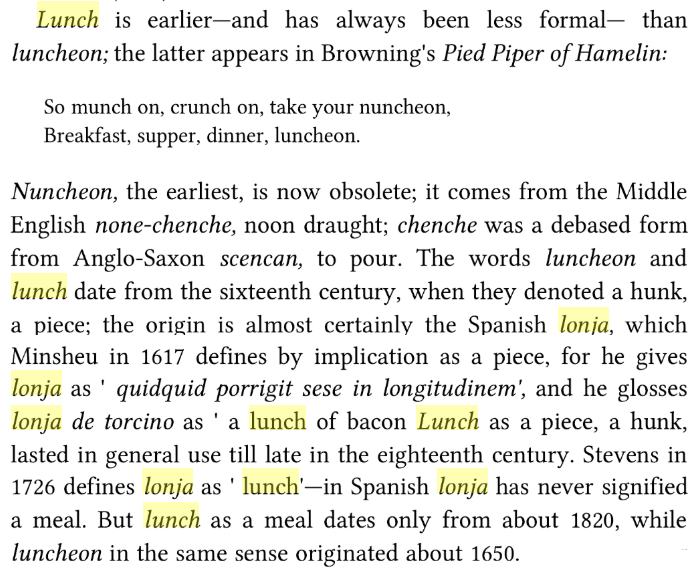I have recently discovered the words of José María Pemán from 1941 regarding the origin of the English word lunch. My translation (sorry):
Wellington's Englishmen arrive in Spain, they fall in love with the Spanish custom of having a drink and some trifles at about eleven o'clock in the morning, that is why it was called "tomar las once"1, they make it their custom and take it to England, they disfigure the name omitting vowels, and from l'once they end up with lunch.
1Literally, "to have elevens". To have something at eleven o'clock.
This tries to explain why in the last quarter of the 19th century the word lunch was adopted in Spain as an exotic custom, even though that custom was something we had been doing for centuries.
But my question is, do José María Pemán's words have any credibility? As far as I know, lunch is a shortened form for luncheon which is of uncertain origin but it was already used in the 17th century. I am kind of answering my own question, but is there any possible link between the two words, like a boost in the usage of "lunch" based on the Spanish expression or custom? Or maybe the Spanish expression gave birth to another English word apart from lunch?
José María Pemán's speech can be read here (PDF, in Spanish). See page 53 of the PDF (page 435 of the original document).

